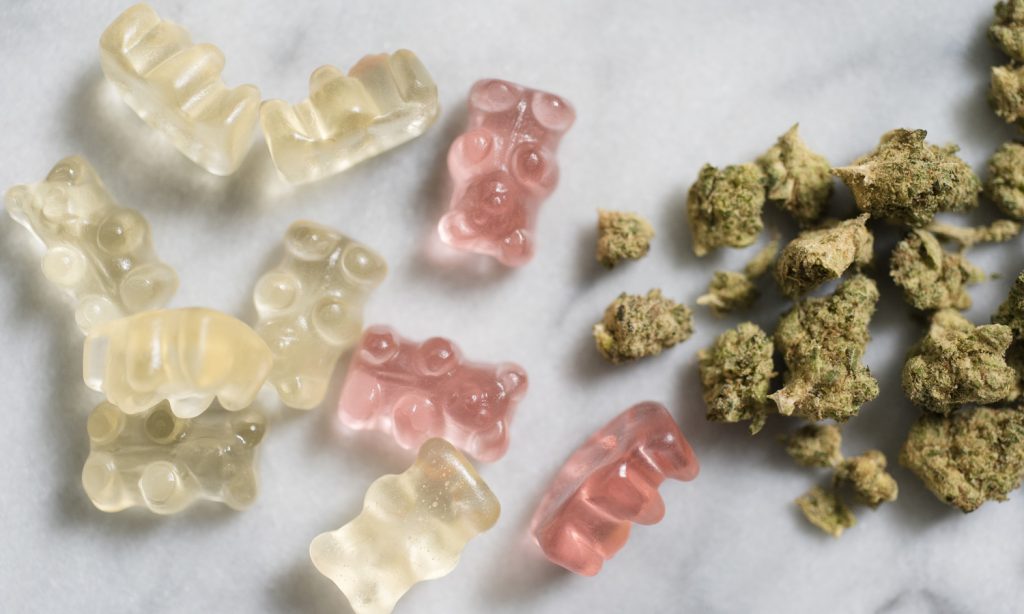Although these products are now legal for sale, they will likely not be available to consumers until mid-December, and in limited quantities at that.
A year after Canada’s national legalization of cannabis, on October 17, 2019, the Government of Canada’s new regulations for edible cannabis, cannabis extracts, and cannabis topicals went into effect. The first round of regulations under the Cannabis Act went into effect on October 17, 2018, and allowed adults who are 18 or 19 years or older (depending on the province or territory) to possess up to 30 grams of legal dried cannabis, or its equivalent in non-dried form and grow up to four plants per residence for personal use. During the first year of legalization in Canada, only dried cannabis products were actually legal.
Now, phase two of the implementation of the Cannabis Act is in place, and the production and sale of edible cannabis, cannabis extracts and cannabis topicals is now legal for provincial and territorial retailers and federally licensed sellers of cannabis for medical purposes. However, although these products are now legal for sale, they will likely not be available to consumers until mid-December, and in limited quantities at that.
RELATED: The Sad Reason Marijuana Research Hasn’t Exploded In Canada
Licensed manufacturers must provide 60-days’ notice to Health Canada of their intent to sell any new products, hence the projected timeline for availability in mid-December. It will likely be some time before a broad range of edible and extract products are actually available for purchase by consumers.
Many of the restrictions placed on cannabis manufacturers in Canada will be familiar to those in most U.S. markets. Some of the highlights of the new regulations include the following:
- Products cannot contain nicotine or alcohol;
- Cannabis extracts cannot contain sugars, sweeteners or sweetening agents;
- Edible cannabis products must not contain any ingredients other than food and food additives;
- Edible cannabis products cannot contain caffeine unless that caffeine is present via ingredients that naturally contain caffeine and the total amount of caffeine in each container does not exceed 30 mg;
- Edible products that must be refrigerated are not allowed;
- Edible cannabis products may not contain a quantity of THC that exceeds 10 mg per immediate container;
- Cannabis extracts and accessories that contain cannabis extracts cannot be promoted in a manner that could lead consumers to believe that the product has a flavor other than the flavor of cannabis;
- Cannabis products cannot be promoted in a way that could associate the cannabis with an alcoholic beverage (making collabs with alcohol brands unlikely). The same prohibition goes for tobacco products.

RELATED: Canada’s Legalization Of Weed Edibles Is Another Global Social Experiment
In addition to the foregoing, the Cannabis Act contains testing requirements and restrictions on marketing, advertising, and labeling that will look familiar to many in the U.S. markets, although some of the Canadian regulations are notably more stringent that what we’ve seen here in California. The following restrictions on product wrappers are a great example of the level of detail and extent of the restrictions faced by cannabis manufacturers in Canada:
The interior and exterior surface of a wrapper must
(a) not display any brand element;
(b) not display any image or information;
(c) be one uniform colour, which may be different for each surface;
(d) not be fluorescent, have fluorescent properties in the ink or have pigments that absorb ultraviolet energy and transmit it as a longer wavelength, such as the Pantone 800 series;
(e) have a smooth texture without any embossing or decorative ridges;
(f) not include any hidden feature that is designed to change the appearance of the wrapper, such as heat-activated ink or a feature that is visible only through technological means; and
(g) not be capable of emitting a scent or sound
With these restrictions in place, we’ll be curious to see how the introduction of cannabis edibles, concentrates, and topicals goes in Canada, and anticipate that it will be a relatively slow ramp-up.
Alison Malsbury is an attorney at Harris Bricken, a law firm with lawyers in Seattle, Portland, Los Angeles, San Francisco, Barcelona, and Beijing. This story was originally published on the Canna Law Blog.


